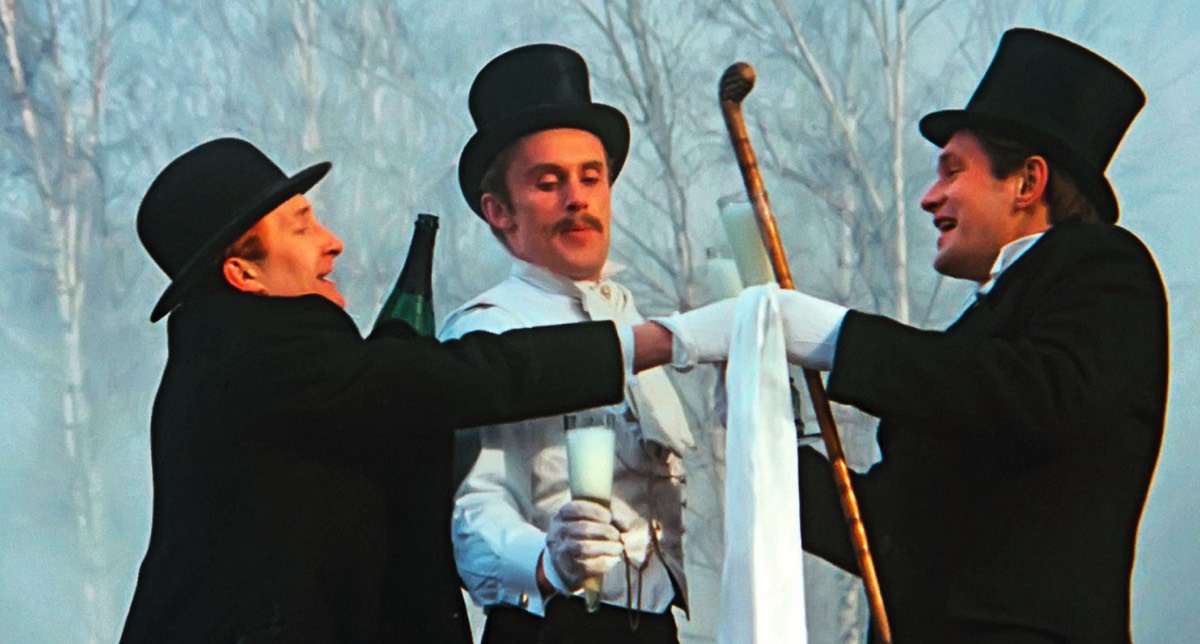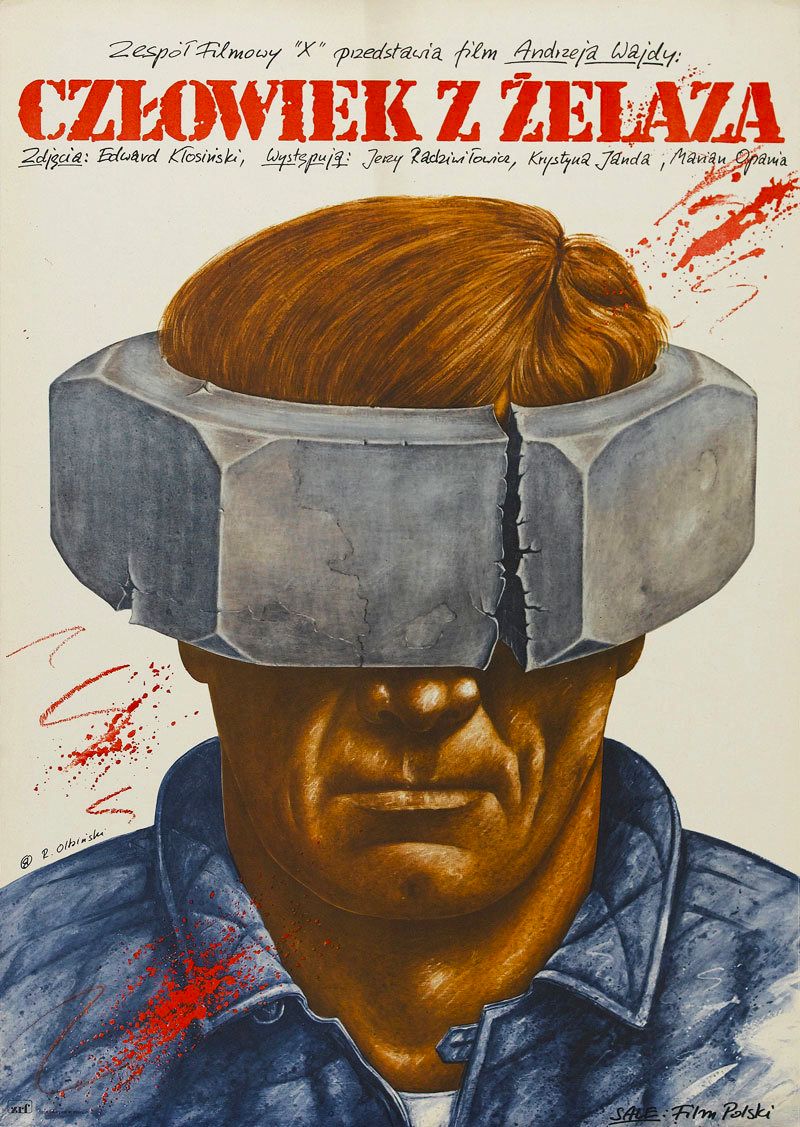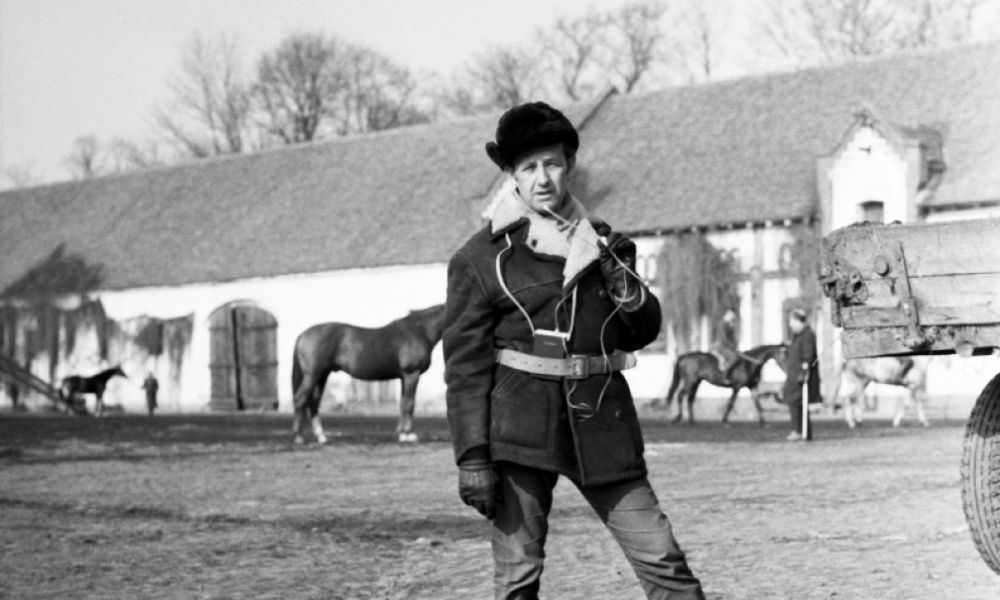"Wajda’s work reveals many forms and many layers. Over time, historical films alternate with films on contemporary subjects; films with a broad social sweep alternate with films that concentrate on intimate human experiences. Wajda is conscious of these alternations. From history he returns to contemporaneity, so as not to lose contact with the times and with his audience." - Blažena Urgošiková (International Dictionary of Films and Filmmakers, 2000)
Andrzej Wajda
Key Production Countries: Poland, France
Key Genres: Drama, War Drama, Psychological Drama, Period Film, Political Drama, War, Biopic, Romantic Drama, Resistance Film, Historical Film, War Romance
Key Collaborators: Halina Prugar-Ketling (Editor), Daniel Olbrychski (Leading Actor), Allan Starski (Production Designer), Edward Klosinski (Cinematographer), Krystyna Janda (Leading Actress), Tadeusz Lomnicki (Leading Actor), Wojciech Pszoniak (Leading Character Actor), Andrzej Seweryn (Leading Character Actor), Krystyna Zachwatowicz (Character Actress), Tadeusz Janczar (Leading Actor), Agnieszka Holland (Screenwriter), Aleksander Scibor-Rylski (Screenwriter)
Key Genres: Drama, War Drama, Psychological Drama, Period Film, Political Drama, War, Biopic, Romantic Drama, Resistance Film, Historical Film, War Romance
Key Collaborators: Halina Prugar-Ketling (Editor), Daniel Olbrychski (Leading Actor), Allan Starski (Production Designer), Edward Klosinski (Cinematographer), Krystyna Janda (Leading Actress), Tadeusz Lomnicki (Leading Actor), Wojciech Pszoniak (Leading Character Actor), Andrzej Seweryn (Leading Character Actor), Krystyna Zachwatowicz (Character Actress), Tadeusz Janczar (Leading Actor), Agnieszka Holland (Screenwriter), Aleksander Scibor-Rylski (Screenwriter)
"This Polish director is a man for the moment. Without sadness and anger, his films often count for little, but no-one was more skilled at bringing home the painfulness in the plight of Poland in both World War II and the post-war years - often to the consternation of authorities. Wajda sees the Poles as a people trapped, ultimately with no escape. This sense of entrapment occurs often throughout his films, whether physically (most often) or metaphorically." - David Quinlan (Quinlan's Film Directors, 1999)
"Wajda has repeatedly used defining moments in Polish history - his trilogy of A Generation, Kanal and Ashes and Diamonds concerned the Nazi occupation and its immediate aftermath - to question traditional notions of national heroism, identity and ideology, while his style has steadily become more poetic, even to the point of excess." - Geoff Andrew (The Director's Vision, 1999)

The Promised Land (1975)
"Arguably Poland's finest director, Andrzej Wajda has crafted films that crackled with historical significance and zeitgeist urgency, and he's often seemed as much a war reporter, social commentator or sly satirist as a maker of fictions... With an enviable dexterity, the director has worked in different genres throughout his long and controversial career. Each diverse work bears the Wajda imprimatur of a trained artist's visual eloquence." - Lloyd Hughes (The Rough Guide to Film, 2007)
"For people in Poland Wajda was more than just a director. He belonged to the generation that believed that art could change the world. His films really changed us. We walked out of the cinema stronger." - Barbara Hollender (FIPRESCI, 2016)
"A maker of unrelenting dramas of the effects of war. Wajda lensed some extremely stark films early in his career (Kanal, 57; Ashes and Diamonds, 57). Later he turned to different subjects." - William R. Meyer (The Film Buff's Catalog, 1978)
"Emerging from the political and artistic thaw in Poland in the early 1950s, Wajda went on to be a key member of the Polish Film School; an informal collective drawing on influences of Italian neorealism through the late 50s and early 60s. Later he was a leading purveyor of the ‘cinema of moral anxiety’ which challenged communist oppression in the 1970s… Unlike several other famous Polish directors, Wajda has remained in his homeland producing challenging and beautiful meditations on national issues. Some filmmakers moved abroad – Roman Polanski, Krzysztof Kieslowski, Agnieszka Holland et al – while others, like Wojciech Marczewski, were hamstrung by state censorship. Wajda both stuck it out in Poland and continued to be active, which has given much his oeuvre a renown for being hermetically Polish in nature." - Ben Nicholson (BFI, 2016)
"Together with Andrzej Munk, the best Polish film maker of his generation. After studying at the film school at Lodz, he assisted Aleksander Ford on Five Boys from Barska Street (53) and revealed his sincerity, forceful style, and typical preoccupation with social issues and heroism in his first feature, A Generation." - Georges Sadoul (Dictionary of Film Makers, 1972)
"Poland's leading filmmaker and one of the major figures in postwar East European cinema... In the late 70s his films became known for their reflection of his country's political unrest. Man of Marble (1977) and Without Anesthesia (1979) studied Poland's turmoil from the viewpoint of individuals ruined by the country's widespread oppression." - The Film Encyclopedia, 2012
"One of Eastern Europe's - and the world's - most important directors, Wajda has chronicled the political and social changes of his native Poland with sensitivity, passion, and a refusal to pull punches. Wajda joined the Polish resistance as a teenager during World War 2, then studied painting, and eventually went to Poland's State Film School at Lodz." - Leonard Maltin's Movie Encyclopedia, 1995
"By far the best-known film director working in Poland, Andrzej Wajda has achieved the status, both in his life and his work, of a symbol for his beleaguered country... In addition to adapting literary works to the screen, Wajda has consistently drawn on Polish history for material suited to his tragic senseibility - from the fate of lancers serving under Napoleon in Ashes (1965) to the harsh industrialization of Lodz in Land of Promise (1975)." - Lenny Rubenstein (The Virgin International Encyclopedia of Film, 1992)
"A director has only two options: to make films about what he sees around him or to focus on his own creativity and deal incessantly with himself. I make films for a reason, about something that people are preoccupied with, something of import. When I have something to say, I try to say it using different kinds of material—be it The Birch Wood or Landscape After Battle or Man of Marble or Danton. It doesn’t start with me, but with what goes on out there." - Andrzej Wajda (Film Comment, 1984)
Selected Filmography
{{row.titlelong}}
GF Greatest Films ranking (★ Top 1000 ● Top 2500)
21C 21st Century ranking (☆ Top 1000)
T TSPDT R Jonathan Rosenbaum S Martin Scorsese
21C 21st Century ranking (☆ Top 1000)
T TSPDT R Jonathan Rosenbaum S Martin Scorsese
Andrzej Wajda / Favourite Films
The Asphalt Jungle (1950) John Huston, Bad Luck (1960) Andrzej Munk, Breathless (1960) Jean-Luc Godard, Un Chien andalou (1928) Luis Buñuel, Citizen Kane (1941) Orson Welles, Earth (1930) Alexander Dovzhenko, Outskirts (1933) Boris Barnet, Paisan (1946) Roberto Rossellini, The Silence (1963) Ingmar Bergman, La Strada (1954) Federico Fellini, Throne of Blood (1957) Akira Kurosawa, The Tin Drum (1979) Volker Schlöndorff.
Source: Kommersant (1998)
The Asphalt Jungle (1950) John Huston, Bad Luck (1960) Andrzej Munk, Breathless (1960) Jean-Luc Godard, Un Chien andalou (1928) Luis Buñuel, Citizen Kane (1941) Orson Welles, Earth (1930) Alexander Dovzhenko, Outskirts (1933) Boris Barnet, Paisan (1946) Roberto Rossellini, The Silence (1963) Ingmar Bergman, La Strada (1954) Federico Fellini, Throne of Blood (1957) Akira Kurosawa, The Tin Drum (1979) Volker Schlöndorff.
Source: Kommersant (1998)
Andrzej Wajda / Fan Club
Agnieszka Holland, Martin Scorsese, Krzysztof Zanussi, Roy Andersson, Andrei Plakhov, Fung Ka Ming, Barbara Giza, Penelope Gilliatt, Jean-Pierre Frimbois, Michael Brooke, Michael Wilmington, Janusz Wróblewski.
Agnieszka Holland, Martin Scorsese, Krzysztof Zanussi, Roy Andersson, Andrei Plakhov, Fung Ka Ming, Barbara Giza, Penelope Gilliatt, Jean-Pierre Frimbois, Michael Brooke, Michael Wilmington, Janusz Wróblewski.
"Fan Club"
These film critics/filmmakers have, on multiple occasions, selected this director’s work within film ballots/lists that they have submitted.
These film critics/filmmakers have, on multiple occasions, selected this director’s work within film ballots/lists that they have submitted.


